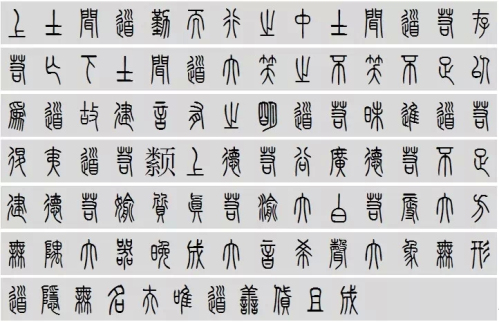Chapter 41
第四十一章
Scholars of the highest class, when they hear about the Tao, earnestly carry it into practice.
上士闻道,勤而行之;
Scholars of the middle class, when they have heard about it, seem now to keep it and now to lose it.
中士闻道,若存若亡;
Scholars of the lowest class, when they have heard about it, laugh greatly at it.
下士闻道,大笑之。
If it were not (thus) laughed at, it would not be fit to be the Tao.
不笑不足以为道。
Therefore the sentence-makers have thus expressed themselves:
故建言有之:
'The Tao, when brightest seen, seems light to lack;
明道若昧,
Who progress in it makes, seems drawing back;
进道若退,
Its even way is like a rugged track.
夷道若纇。
Its highest virtue from the vale doth rise;
上德若谷;

Its greatest beauty seems to offend the eyes;
大白若辱;
And he has most whose lot the least supplies.
广德若不足;
Its firmest virtue seems but poor and low;
建德若偷;
Its solid truth seems change to undergo;
质真若渝。
Its largest square doth yet no corner show
大方无隅;
A vessel great, it is the slowest made;
大器晚成;
Loud is its sound, but never word it said;
大音希声;
A semblance great, the shadow of a shade.'
大象无形;
The Tao is hidden, and has no name;
道隐无名。
but it is the Tao which is skilful at imparting (to all things what they need) and making them complete.
夫唯道,善贷且成。












